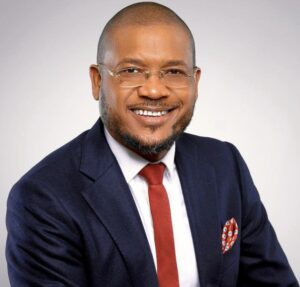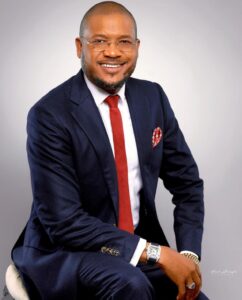“BE FINANCIALLY INDEPENDENT BEFORE GOING INTO POLITICS”—HON PELLER
TNNNEWS’ ONE ON ONE WITH HON. SHINA ABIOLA PELLER
Iseyin, Oyo State,Nigeria — In a candid and gripping interview, Nigerian businessman and former federal lawmaker, Hon. Shina Peller, has revealed the unexpected spark that ignited his foray into politics — a failed water supply in his own bathroom.
Speaking openly, Hon. Peller recounted how a seemingly ordinary experience became the turning point in his life. “I learned a lesson myself from that decision,” he began. “If anybody had said I would do politics in my life, I could bet with the person — even with just five naira — that I would never go into politics.”
Once solely focused on his expansive business empire, which includes ventures in oil and gas, building and construction, a record label, and the globally recognized Club Quilox (now in its 12th year), Peller was living a fast-paced entrepreneurial dream. In 2017, during a world tour promoting Quilox with pop-up events in cities like Johannesburg, Miami, London, and Dubai, his perspective took a sharp turn.
“I remember that morning I just got back from London. I wanted to have a shower and sleep. After I got in, put soap on my head, suddenly the water stopped,” he narrated. “In my own house, in Lekki, at my level, the water stopped. I had to walk out, risking a fall, just to find out it was about pumping water.”
That moment of frustration stirred a larger realization.
“Why am I disturbing myself trying to build something in a failed system? Whether I like it or not, it’s a failed system.”
Though he had vowed publicly to never join politics — even joking that anyone who saw his “leg in politics should cut it” — he reconsidered. “That day, I told my team, and one of my staff, began looking for a knife, reminding me of what I said,” he laughed. “That was a lesson: never say never. Change is constant.”
Initially, Peller only wanted to influence political selection, supporting credible candidates behind the scenes. But the long-term nature of that route, and the potential time it would take to see results, pushed him to take the lead himself. “If I want the change I desire, it might take 30 years through another person. That would be too late.”
Aligning with Makinde’s Leadership
When asked what inspired his recent political realignment in Oyo State, Peller didn’t hesitate to name Governor Seyi Makinde.
“Honestly, it’s Governor Seyi Makinde,” he said, praising the governor’s people-first approach and capacity to work across party lines. “I was in APC when erosion affected my constituency. He didn’t see me as an APC member or a PDP opponent. He simply acted.”
Peller described Makinde as a man of proven success even before politics — a rare quality he believes Nigeria needs more of.
“We probably align in ideology because we are from the same school of thought,” he said. “It is better to look for people that have achieved something on their own to lead.”
In a wide-ranging and candid political reflection, Hon. Dr. Shina Peller has lauded the administration of Governor Seyi Makinde of Oyo State, praising his achievements and progressive ideology while reaffirming his commitment to the People’s Democratic Party (PDP) and to a generational shift in Nigerian leadership ahead of the 2027 general elections.
Speaking in an exclusive media interaction, Hon. Peller described Governor Makinde as a visionary leader who has created a “new system” of governance in Oyo State, emphasizing infrastructure transformation, inclusive development, and youth engagement.
“When we faced challenges in the past, Governor Seyi Makinde didn’t see party lines—he saw solutions,” Peller recalled, referencing a critical moment of bipartisan collaboration. “I aligned with him not because of party, but because we come from the same school of thought. He’s someone who had become successful before venturing into politics.”
Hon. Peller, who contested the 2023 Oyo North Senatorial seat under the Accord Party after a disputed APC primary, reiterated that his defection from APC was necessitated by electoral injustice. “We were disenfranchised in APC, so we moved to Accord. But even then, the election was rigged in favor of APC,” he stated. “I had to take a stand, and I decided to support Governor Makinde, because I saw sincerity and capacity in his leadership.”
Peller highlighted Makinde’s transformative projects, including the Ibadan Circular Road and the construction of major highways previously abandoned or non-existent, like the Moniya-Iseyin Road and Oyo-Iseyin Road. “Before now, that journey would take hours and damage your vehicle. Today, I can leave Iseyin by 10 p.m. and arrive Ibadan in an hour,” he said.
He described the transformation as unprecedented. “Governor Makinde didn’t just repair roads—he created them. He turned bush paths into highways. That’s the new system—Omituntun—a government of practical impact.”
Shina Peller, an advocate for youth participation in politics, warned against recycling old leaders. “It’s time for the elders to support the younger generation. This is the youth’s era. If I ever get to 75, I won’t contest for office—I’ll focus on my relationship with God. Leadership shouldn’t be about clinging to power.”
As discussions turned to 2027, Peller confirmed his intention to seek a return to the Senate. “I believe we won the last time, and by the grace of God, we’re giving it a second try. Oyo North has 13 local governments—it’s larger than some states. We deserve proper representation, and I’m ready to offer that.”
Asked about PDP’s readiness for 2027, he said: “PDP is the only party that has not changed its name since 1999. Yes, there are defections, but many are motivated by fear of probe, not ideology. What PDP needs now is to purge bad elements infiltrating the system.”
On the contentious issue of zoning the presidency, Peller expressed strong views: “Nigeria should not be ruled by anyone older than the country. We need leaders with energy and fresh ideas—not those winding down. Let’s support younger candidates who understand today’s challenges.”
Looking ahead, he expressed hope that Governor Makinde’s legacy would be preserved beyond 2027. “Continuity is critical. I pray the next leader in Oyo State will understand and sustain the vision of Omituntun—the new system Makinde has built.”
Peller concluded with optimism for Nigeria’s political future: “We need boldness, sincerity, and unity. I believe if we put the people first, we can truly get it right this time.”













